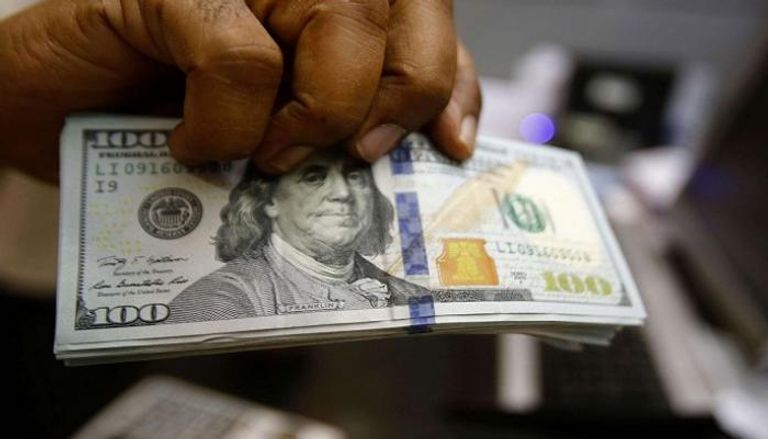يشهد لبنان زحمة استحقاقات مالية مهمة ومتزامنة خلال الشهر الحالي، تبدأ بشروع الحكومة في مناقشة مشروع قانون الموازنة للعام المقبل، التي خُصصت لها جلسة بعد ظهر الثلاثاء، بعد إحالة المشروع قبل أيام من قبل وزارة المال، ولا تنتهي بانتظار قلق للغاية من صدور قرار «مجموعة العمل المالي الدولية (فاتف)» الذي يقضي بضم البلد إلى قائمة الدول غير المتعاونة كفاية في مكافحة غسل الأموال وتمويل الإرهاب، فضلاً عن اليوميات القضائية المرتقبة لقضية توقيف الحاكم السابق لـ«البنك المركزي» رياض سلامة.
ويُبنى على كيفية إدارة هذه القضايا ومآلاتها لدى السلطات التنفيذية والتشريعية والقضائية، وفق مسؤول مالي معني، لكشف مدى التغيير المنهجي وحدوده في معالجة الأزمات المتفاقمة اقتصادياً واجتماعياً، عشية مرور السنة الخامسة على انفجار الأزمات المالية والنقدية والاجتماعية، وما أنتجته من انكماش حاد في الناتج المحلي، وتبديد الثروات والاحتياطات، وارتفاعات قياسية في نسب التضخم ومعدلات الفقر، ووسط انغماس إضافي في حال «عدم اليقين» ربطاً بالمخاوف من توسع الحرب المستمرة على الحدود الجنوبية.
وباستثناء إيجابية التوجه لالتزام الحكومة بإحالة مشروع الموازنة في موعده الدستوري قبل بدء الدورة الخريفية لمجلس النواب في الشهر المقبل، لمس المسؤول المعني «استمرار تجاهل الإصلاحات الهيكلية في إدارة المالية العامة، والاطمئنان الوهمي إلى التوازن الرقمي بين الإنفاق والواردات بالاعتماد على عزل الإنفاق الاستثماري وموجبات الدين العام، وبما يشمل خصوصاً مستحقات سندات الدين الدولية التي تعدّت مع فوائدها المعلقة حاجز 40 مليار دولار، بعدما أقدمت الحكومة السابقة في ربيع عام 2020 على إشهار عجز الدولة عن دفع أقساط الديون العامة».
ورغم تحقيق وفرة في حساب الدولة لدى «البنك المركزي» بما يتعدى 5 مليارات دولار، موزعة بالليرة وبالدولار المحلي (المصرفي) والدولار النقدي (الفريش)، فإن أرقام مشروع الموازنة لحظت عجزاً بنحو 200 مليون دولار؛ أي بنسبة 4 في المئة، محتسبة على نفقات تبلغ نحو 4.78 مليار دولار، ومن دون احتساب خدمة الدين العام، مما سيثير تلقائياً إشكالات إضافية في المناقشات النيابية اللاحقة لإقرار المشروع في مجلس الوزراء، لا سيما في ظل الهواجس المتصاعدة من إمكانية إقدام حملة سندات «اليوروبوندز» الأجانب على مقاضاة الدولة لدى المحاكم الأميركية وفق مندرجات عقود الاستدانة، بعد مرور مهلة 5 سنوات على تعليق دفع الأصول والفوائد في الربيع المقبل.
لذلك، يرجّح، وفقاً للمسؤول المالي، أن يخضع مشروع الموازنة لعمليات تمحيص وتدقيق واسعة النطاق لدى لجنة المال النيابية واللجان المشتركة، طبقاً لخلاصاتها في تفنيد وتعديلات موازنة العام الحالي، لا سيما لجهة الإمعان في تغييب الرؤيتين الاقتصادية والاجتماعية لمشروع الموازنة، وتدني نسبة الاعتمادات المخصصة للنفقات الاستثمارية، فضلاً عن الخلل المتعلق بإعادة هيكلة القطاع العام وسلسلة الرواتب، والتمادي في تجاهل موجبات الشروع في التفاوض مع الدائنين بالدولار بعد تآكل وعدم معالجة فئة الديون المتوجبة بالليرة، ومعظمها يعود إلى «البنك المركزي» والمصارف وصندوق الضمان الاجتماعي وصناديق نقابية ومهنية.
وبالترابط مع بنود الموازنة العامة، تبرز إشكالية سعر الصرف المعتمدة على سحوبات المودعين غير المستفيدين من الحصص الشهرية المتاحة بمعدل 400 دولار و330 و150 دولاراً وفق تعاميم خاصة صادرة عن «البنك المركزي». فالسحوبات الدولارية من الودائع، لا تزال تخضع لسعر صرف يبلغ 15 ألف ليرة لكل دولار، بينما يتكبد المودعون انفسهم سداد كامل الرسوم والضرائب وبدلات الخدمات العامة المختلفة بالسعر الساري البالغ 89.5 ألف ليرة للدولار الواحد.
وتمثل هذه الالتباسات منذ اعتماد الحاكم السابق، رياض سلامة، السعر الرسمي السابق لليرة في شهر شباط من عام 2023، فجوة إضافية في الجهود المنشودة لإعادة الانتظام المالي والمصرفي، بوصفها تكريساً غير مشروع للظلم اللاحق بالمودعين، خصوصاً لعشرات الآلاف من المتقاعدين الذين يعانون أساساً من هشاشة مداخيلهم، بعد اضمحلال شبه تام وبنسبة 98 في المئة لتعويضاتهم المحررة بالليرة، والمخاوف الكامنة من الاقتطاعات الكبيرة التي تقترحها المقاربات الحكومية لفئة المدخرات التي جرى تحويلها للدولار بعد انفجار الأزمات، عبر تصنيفها ضمن خانة «غير المؤهلة للسداد»، وبواقع 36 في المائة فقط بالتقسيط على 11 سنة لمبلغ مائة ألف دولار.
ويشير المسؤول المالي المعني إلى استحقاق لا يقل وزناً وأهمية خلال الشهر الحالي؛ لبُعده الدولي المؤثر في مجمل كيانات القطاع المالي وعملياته اليومية عبر الحدود. فرغم الجهود المضنية التي بذلتها السلطة النقدية في عواصم القرار المالي الدولية، فإن الاحتمال يظل مرتفعاً في مسألة إدراج لبنان أواخر الشهر الحالي من قبل «مجموعة العمل المالي الدولية (فاتف)» ضمن اللائحة الرمادية للدول التي تعاني قصوراً ملحوظاً في مكافحة الجرائم المالية.
وأفلحت المهمة الشائكة التي قادها حاكم «البنك المركزي» بالإنابة، الدكتور وسيم منصوري، في تحييد القنوات المالية للقطاع المالي والتحويلات من لبنان وإليه عن تداعيات القرار المحتمل لخفض تصنيفه في مجال مكافحة غسل الأموال، وربما تعديله إيجاباً في الأيام المقبلة، بعد جولة اجتماعات ومشاورات ختمها للتو في لندن مع رؤساء ومديرين في بنوك مراسلة لـ«المركزي» ولبنوك لبنانية، والمسبوقة بجولة مماثلة أجراها قبل نحو شهر في واشنطن، وشملت مسؤولين كباراً في وزارة الخزانة الأميركية و«صندوق النقد» و«البنك» الدوليين.
المصدر: علي زين الدين – الشرق الأوسط
**Lebanon Faces a Series of Financial Challenges**
Lebanon is currently facing a series of significant and overlapping financial challenges this month. The government has started by discussing the draft budget law for the upcoming year, with a session scheduled for Tuesday afternoon, following the submission of the draft by the Ministry of Finance a few days ago. The month’s concerns, however, do not end there, as Lebanon awaits with great anxiety the decision from the Financial Action Task Force (FATF) on whether the country will be added to the list of non-cooperative states in fighting money laundering and terrorist financing. Additionally, there are ongoing legal proceedings related to the arrest of former Central Bank Governor Riad Salameh.
According to a financial expert, the outcome of these issues and how they are managed by the executive, legislative, and judicial authorities will be crucial in determining the scope of any systemic change in addressing the country’s deepening economic and social crises. These challenges come as Lebanon approaches the fifth anniversary of its financial, monetary, and social collapse, marked by a sharp decline in GDP, the depletion of wealth and reserves, record levels of inflation and poverty, and growing uncertainty, especially with concerns over the ongoing war on the southern borders.
While it is positive that the government has submitted the draft budget on time, ahead of the fall parliamentary session next month, the financial expert noted a continued lack of focus on structural reforms in public financial management. There remains an overreliance on an illusory balance between expenditures and revenues, excluding investment spending and public debt obligations. This includes particularly the overdue Eurobond payments, which now exceed $40 billion, including interest. The previous government declared a default on these debts in the spring of 2020.
Despite having over $5 billion in the state’s account at the Central Bank, spread across local currency, local dollars (bank dollars), and fresh dollars, the draft budget still projects a deficit of around $200 million, or 4%, based on projected expenditures of $4.78 billion, excluding public debt servicing. This is expected to spark heated discussions in Parliament, especially amid growing concerns over the possibility of foreign Eurobond holders suing the state in U.S. courts once the five-year moratorium on debt payments ends next spring.
Given this, the financial expert anticipates that the budget will undergo extensive review and scrutiny by the Parliamentary Finance Committee and joint committees, similar to the review and amendments made to this year's budget. The focus will likely be on the continued absence of a clear economic and social vision, the low allocation for investment spending, and the ongoing neglect of critical issues like public sector restructuring and wage adjustments. Furthermore, there has been no progress on negotiations with foreign creditors, particularly after the complete disregard for local currency debt, most of which is owed to the Central Bank, banks, the Social Security Fund, and various professional and union funds.
In connection with the budget, the issue of exchange rates is also a point of contention. Depositors who are not benefiting from the Central Bank’s monthly withdrawal limits (set at $400, $330, and $150) are still being allowed to withdraw their funds at a rate of 15,000 LBP per dollar, while they are required to pay taxes and fees at the current market rate of 89,500 LBP per dollar.
These inconsistencies, which have persisted since the former Central Bank governor set the official exchange rate in February 2023, have created additional obstacles to restoring financial and banking stability. This unjust policy has particularly affected tens of thousands of retirees, whose incomes have already been severely eroded, with their lira-denominated pensions losing 98% of their value. Meanwhile, the government’s proposals for large deductions on savings converted to dollars after the crisis, suggesting repayment of only 36% over 11 years for amounts up to $100,000, are adding to depositors' concerns.
According to the financial expert, another major issue looms this month with international implications for Lebanon’s entire financial sector. Despite strenuous efforts by Lebanese monetary authorities in international financial capitals, there is still a high probability that Lebanon will be placed on the FATF’s “gray list” for countries with significant deficiencies in combating financial crimes.
However, Central Bank Acting Governor Dr. Wassim Mansouri has made efforts to shield Lebanon’s financial sector from the potential consequences of this downgrade. His recent meetings in London with correspondent banks for Lebanon, as well as earlier consultations in Washington with key figures in the U.S. Treasury, IMF, and World Bank, may lead to a more positive outcome in the coming days.
translated by economyscopes team
 سكوبات عالمية إقتصادية – EconomyScopes إجعل موقعنا خيارك ومصدرك الأنسب للأخبار الإقتصادية المحلية والعربية والعالمية على أنواعها بالإضافة الى نشر مجموعة لا بأس بها من فرص العمل في لبنان والشرق الأوسط والعالم
سكوبات عالمية إقتصادية – EconomyScopes إجعل موقعنا خيارك ومصدرك الأنسب للأخبار الإقتصادية المحلية والعربية والعالمية على أنواعها بالإضافة الى نشر مجموعة لا بأس بها من فرص العمل في لبنان والشرق الأوسط والعالم



